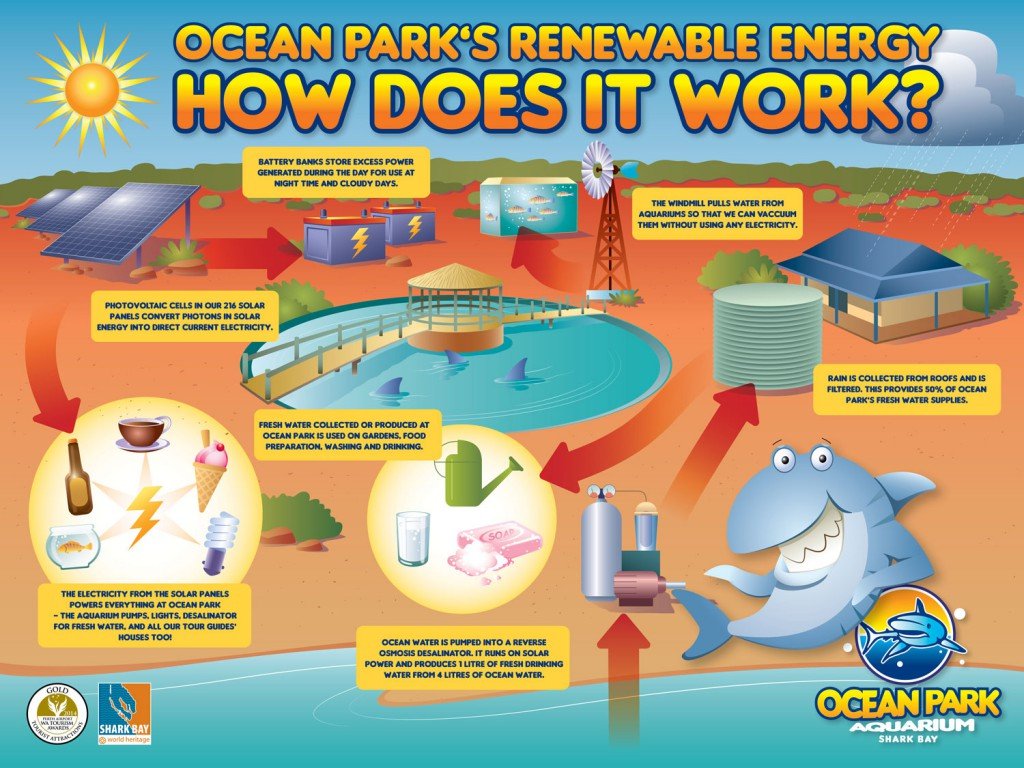About Shark Bay
Situated on the westernmost edge of the Australian continent, Shark Bay is actually two bays separated by the Peron Peninsula.
Shark Bay was recognised by UNESCO in 1991 as one of the most remarkable places on Earth. The Shark Bay World Heritage Area covers 2.2 million hectares and is considered to be one of the world’s greatest wilderness treasures. To be listed, Shark Bay has satisfied natural World Heritage site criteria in the areas of:
- Major stages in the evolutionary history of the world
- Geological and biological processes
- Natural beauty and Unique and significant natural species.
The Shark Bay region is home to five of Australia’s 26 endangered mammal species, as well as 35 percent of Australia’s bird species. The Shark Bay mouse is one of the more well-known endangered species of the region.
The stromatolites found in Hamelin Pool are the most diverse and abundant examples of stromatolitic microbialites in the world. These are colonies of algae which form hard deposits in shallow waters and are similar to structures that were the dominant benthic ecosystems on Earth for 3,000 million years.
Shark Bay is particularly interesting in terms of biological and geomorphic processes due to the natural marine basin within the bay causing variations in water salinity. Over time, the marine basin near Hamelin Pool has formed a reverse estuary containing hypersaline waters. The hyper-salinity is aided by low movement of water through the area and high temperatures resulting in increased evaporation.
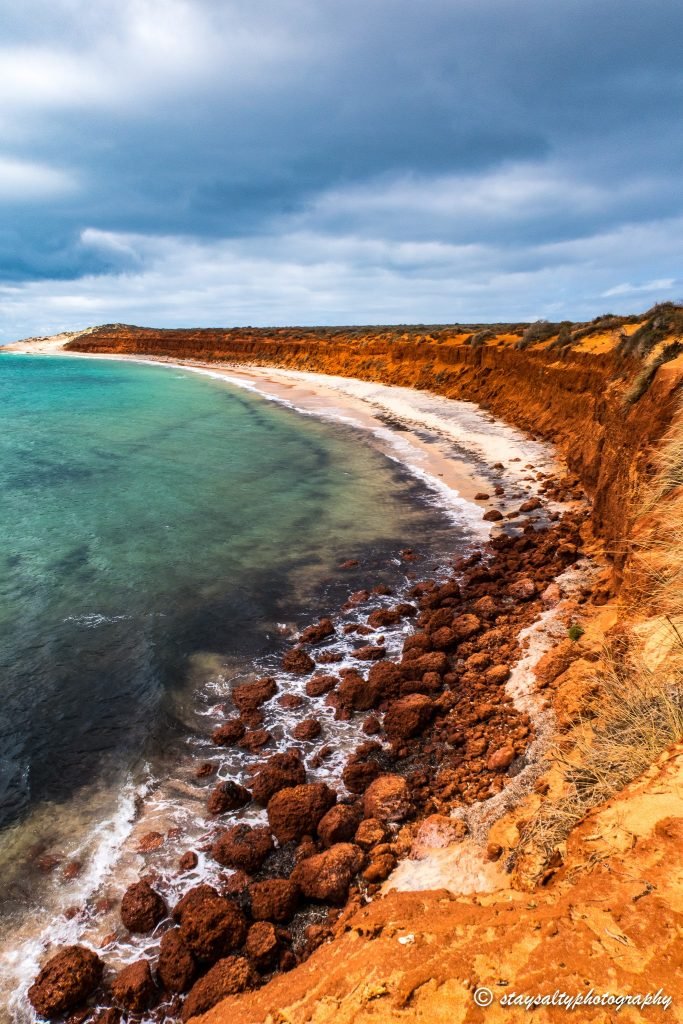
AS OF MAY 2007, SHARK BAY WAS ONE OF 15 WORLD HERITAGE LOCATIONS THAT WERE INCLUDED ON THE AUSTRALIAN NATIONAL HERITAGE LIST
To find out more, visit www.sharkbay.org.au.
SHARK BAY ACCOMMODATION
There are various accommodation options in Shark Bay, including resort, villa, caravanning, backpacker and camping locations. These can be booked through the Shark Bay Discovery & Visitor Centre, the accredited Tourist Information Centre in Shark Bay.
Tours and attractions
- Ocean Park Aquarium Tours
- For boat and 4×4 tours visit www.sharkbayecotours.com
Tourism and information
Sustainability
ECO-FRIENDLY. HARNESSING THE POWER OF NATURE TO BE 100% SELF SUFFICIENT
Proudly eco-friendly, Ocean Park utilises innovative design and the latest in technologies to maintain the park’s facilities and aquaria. Through our eco-friendly initiatives, we hope to reduce our impact on the local environment, reduce greenhouse gas emissions that lead to climate change, and educate our guests on how to do all this in their own homes!
Power
Harnessing the energy of the sun, the park is powered by one of the largest private solar installations in Western Australia. Generating 273 kilowatt hours each day, the installation powers the parks lighting and pump systems, as well as a reverse osmosis desalination unit for generating fresh water. The $1.2million solar power installation was privately funded by the owners of Ocean Park and secured with a loan through Keystart Country Housing Authority. Part of the cost is rebated through the Remote Area Power Scheme.
A windmill is used to prime pumps and also act as a giant vacuum cleaner for the display ponds. Energy-efficient fridges and freezers consume 65% less power than conventional units and technologically efficient pumps and filters reduce energy use.
Water
Water at Ocean Park is sourced in two ways – rainwater and desalinated water. Rainwater is collected from all roof surfaces and stored in bulk water storage tanks which provide us with approximately half of our annual water usage. To save water, reduced flow taps, shower heads and waterless urinals are installed at the restaurant and caretakers quarters.
Dishwashers and washing machines are selected for their low water ratings, and then used on the most efficient settings. The garden is wherever possible native, and other plants are selected for their low water requirement, such as yukkas, dracaenas and bougainvillea. The gardens are mulched and watered at early morning or late evening to reduce evaporation. A desalination plant operates when levels of stored rainwater are depleted.
Waste management
Unfortunately Shark Bay council does not maintain a local recycling system. However Ocean Park does its best by separating paper and cardboard and organic kitchen waste which is then used in composting for our gardens.
We use biodegradable items wherever possible and have designed some groovy Ocean Park travel cups, metal water bottles and coffee mugs so visitors can reduce waste while they travel around WA!
If you would like any more information on eco-friendly tourism or ways to reduce waste and save water in your home, please visit EcoTourism Australia, Western Power, and the Water Corporation’s websites.
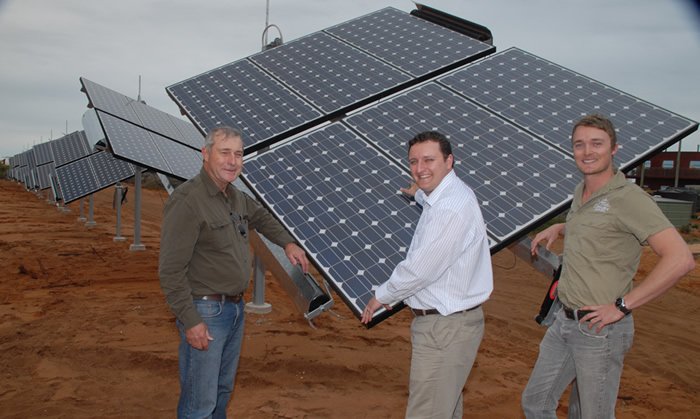
Industry Standard | Our Approach |
| Water drained and refilled periodically,wasting water and energy in pumps to refill | Imitate natural cycle with evaporation, biofiltration with local beach sands, microbes, algae and invertebrates |
| Heat or cool water temperatures with electricity | Water temperature maintained by geothermal power- a deep well to water a constant 22 °C |
| Import animals from around the world for display aquariums and change the local water parameters to suit (temp, pH, DO etc) | Only animals from Shark Bay, so are used to local water parameters- no manipulation required, saving energy in heaters, chemical filters |
| Aquariums inside buildings with air-conditioning, water chillers and 1000kW lighting | Aquariums outside or under roofs with brushwood walls, allowing air circulation and natural lighting with LEDs (also don’t produce as much heat) |
| Electric powered wave generator or similar on a protein skimmer to filter out dissolved organic carbon and waste | Position protein skimmer at north end of ponds to make use of 30n southerly winds that blow 90% of the year |
research
ONSITE RESEARCH
Ocean Park is involved in the WA state government’s research projects into passive shark attack mitigation technologies, the Department of Fisheries fish population surveys and the Department of Parks and Wildlife’s Monkey Mia Dolphins project on a regular basis.
UNIVERSITY PROGRAMS
At Ocean Park we openly encourage cooperation with universities and support scientific studies. We allow university researchers to access the facilities at Ocean Park where three studies into passive shark mitigation strategies were recently undertaken by students from Curtin University in Perth. Our staff also assist with Florida International University’s Shark Bay Ecosystem Research Project.
If you represent a university or marine research organisation and feel you could benefit from working alongside the team at Ocean Park, contact us to discuss the possibilities.
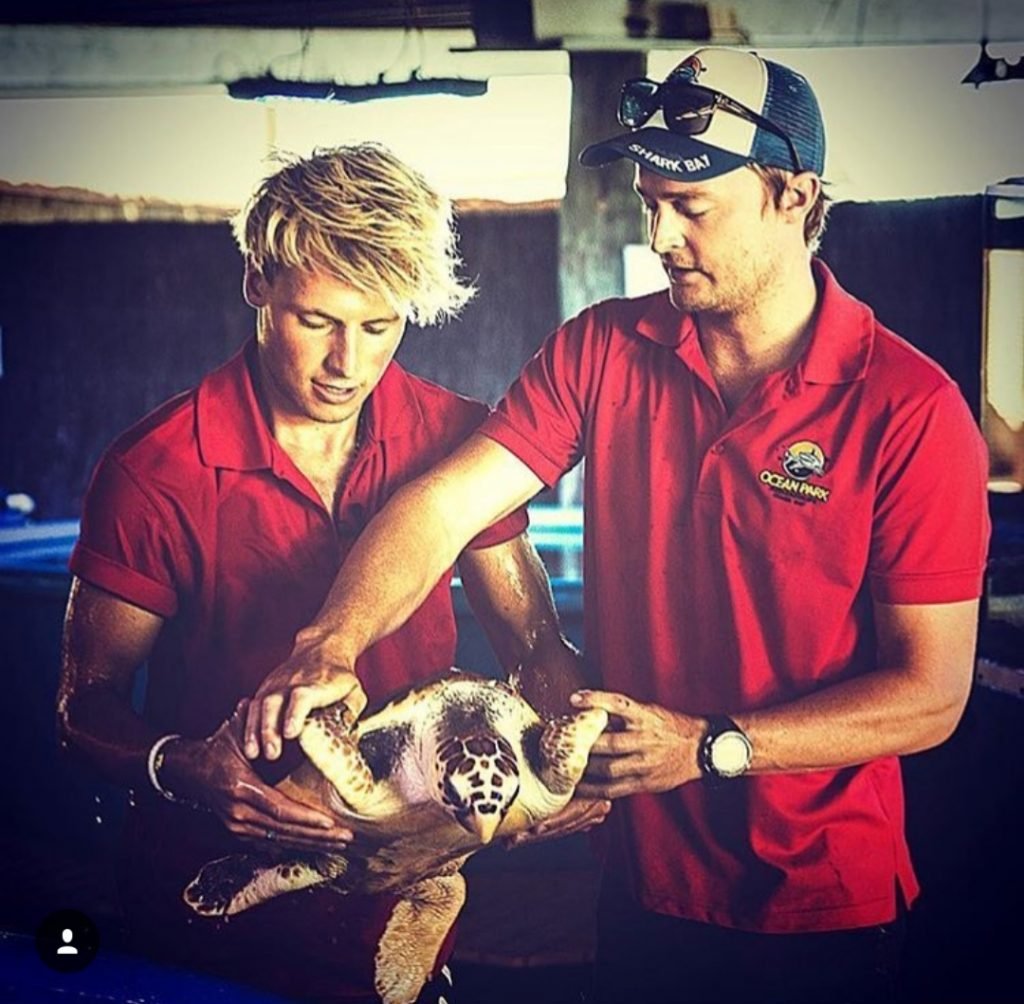
Rehabilitation

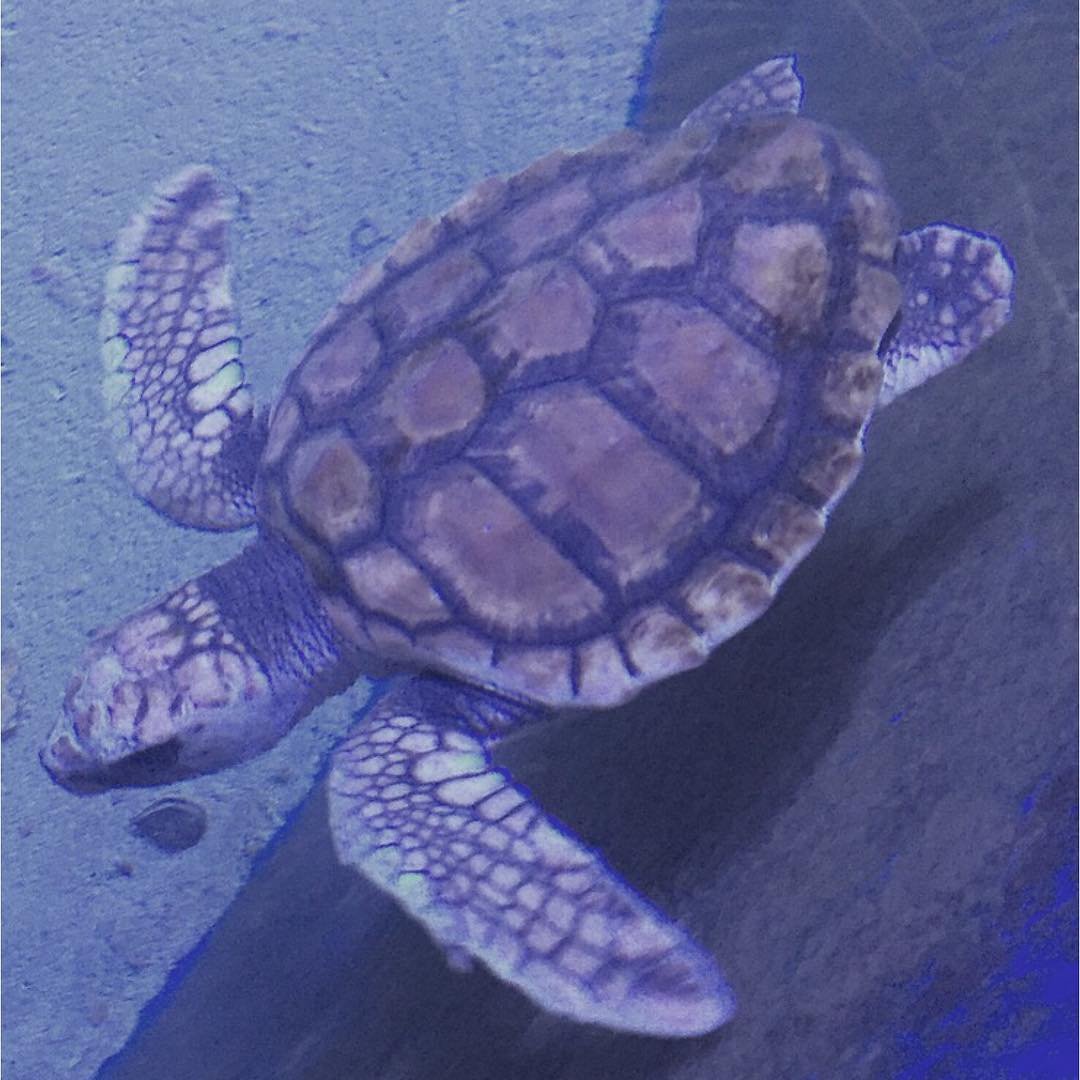
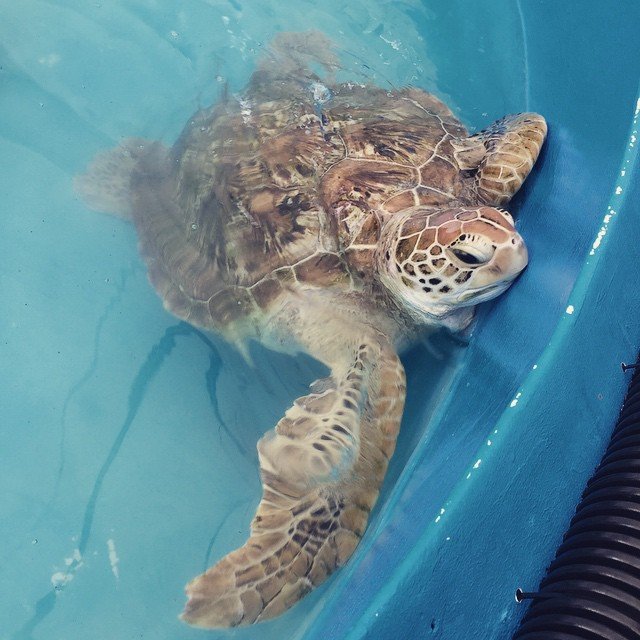
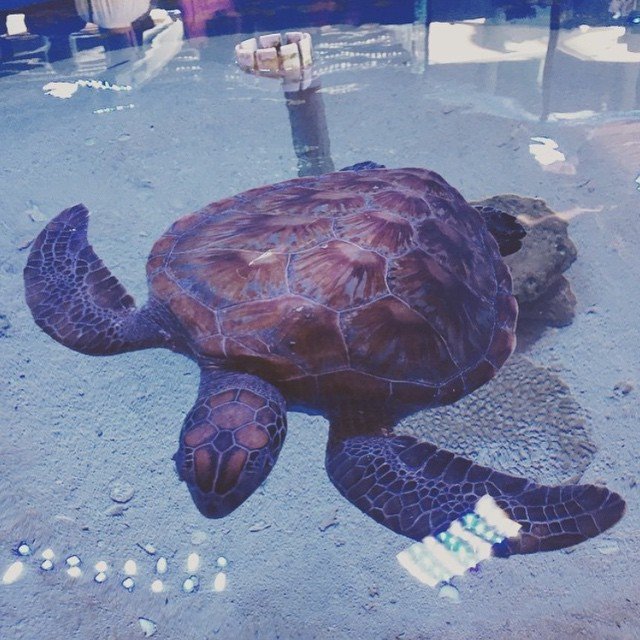
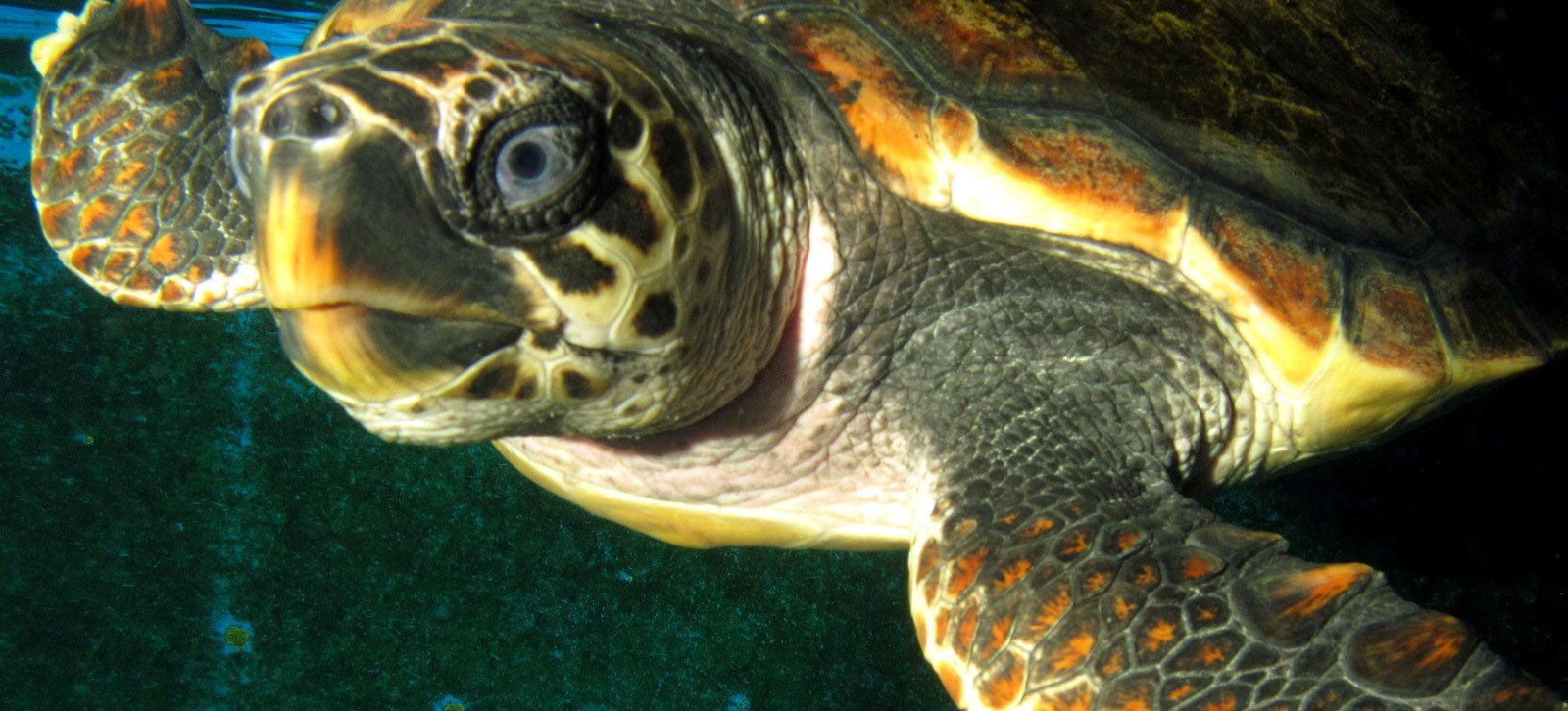
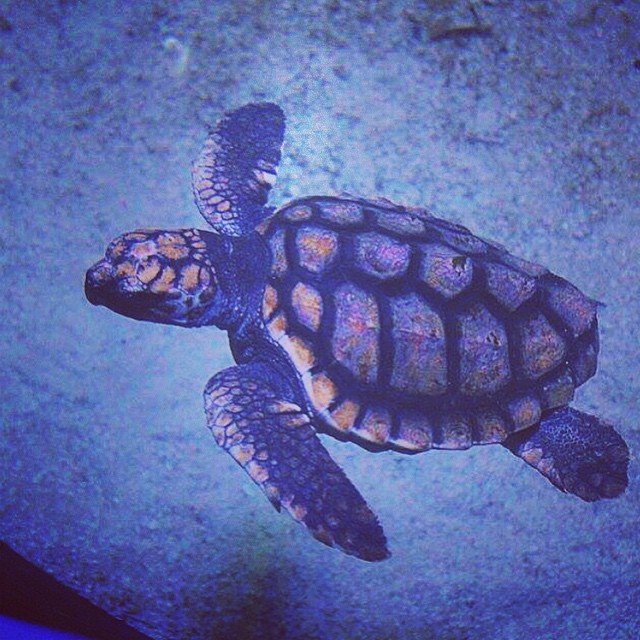

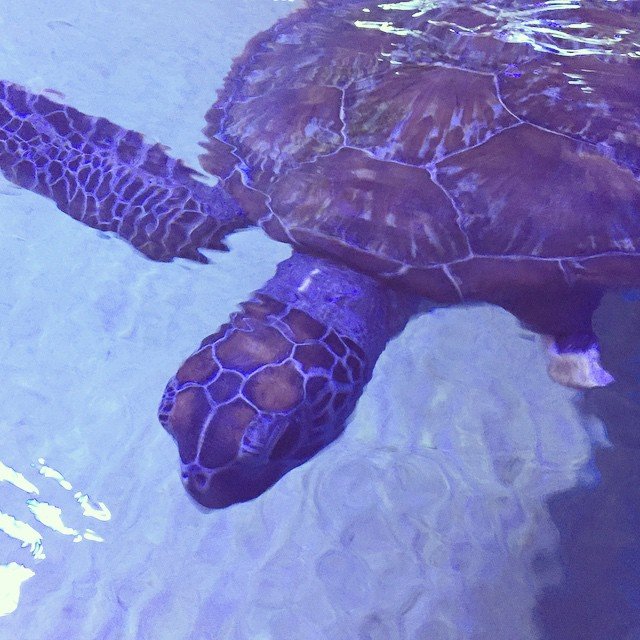

Ocean Park Aquarium includes a rehabilitation facility for sick and injured marine reptiles.
There are only seven species of sea turtle worldwide, with six found in Australian waters. All of these species are considered endangered due to human impact – ingesting or getting entangled in pollution, boat strikes and low water quality to name a few.
Due to recent changes in policies we are currently unable to house any sick or injured animals on public display, however we are working hard at developing a new rehab facility that will hopefully be underway in in the near future.

